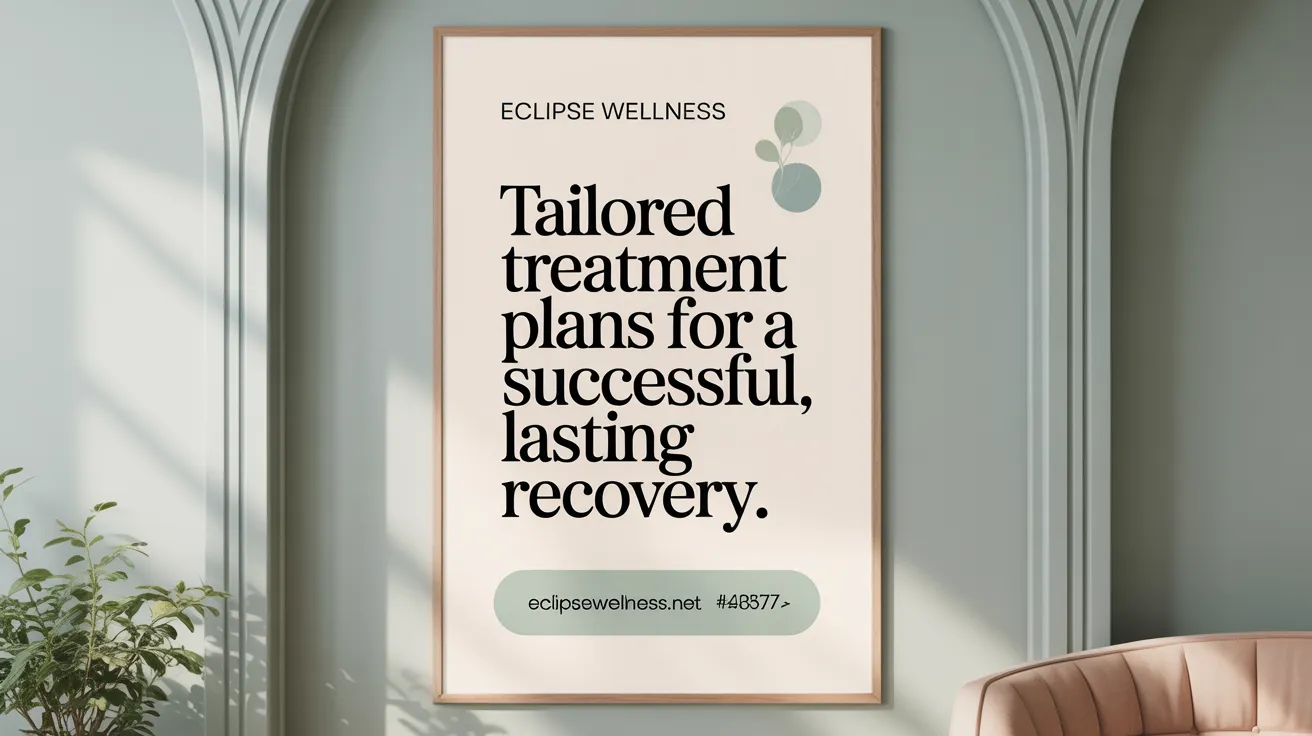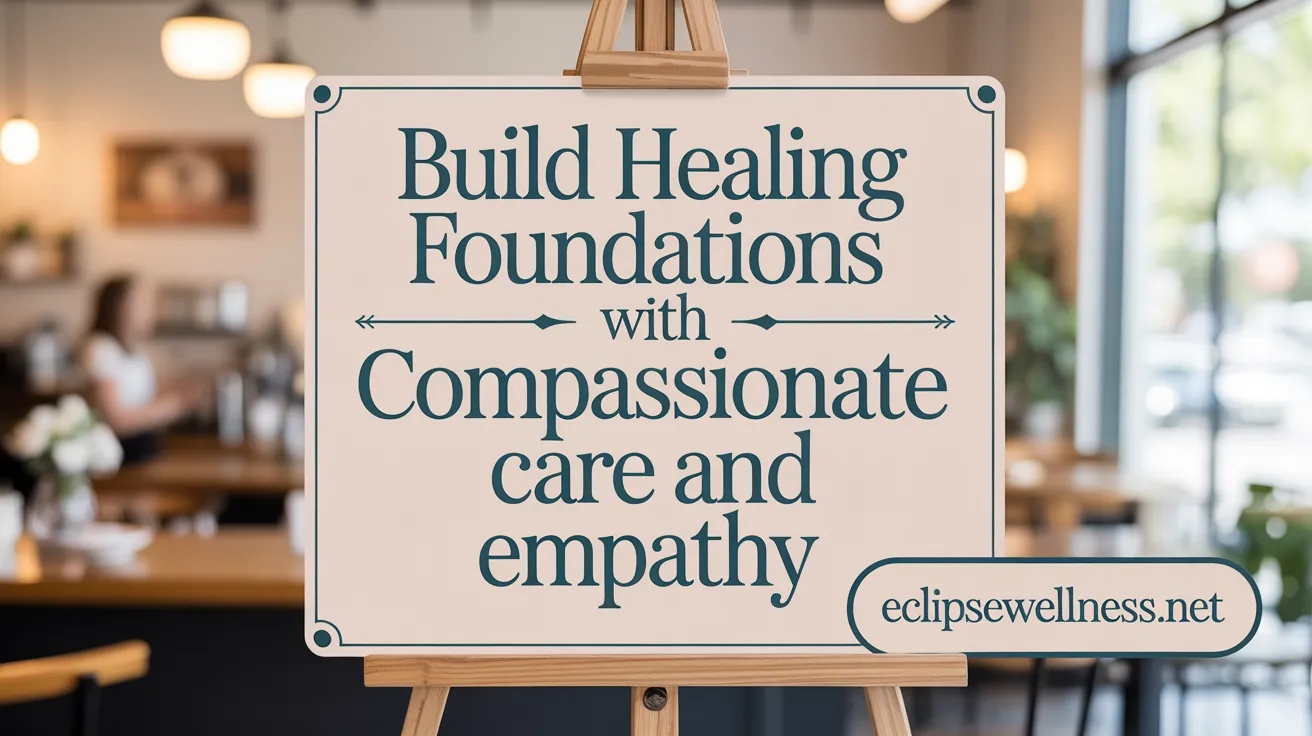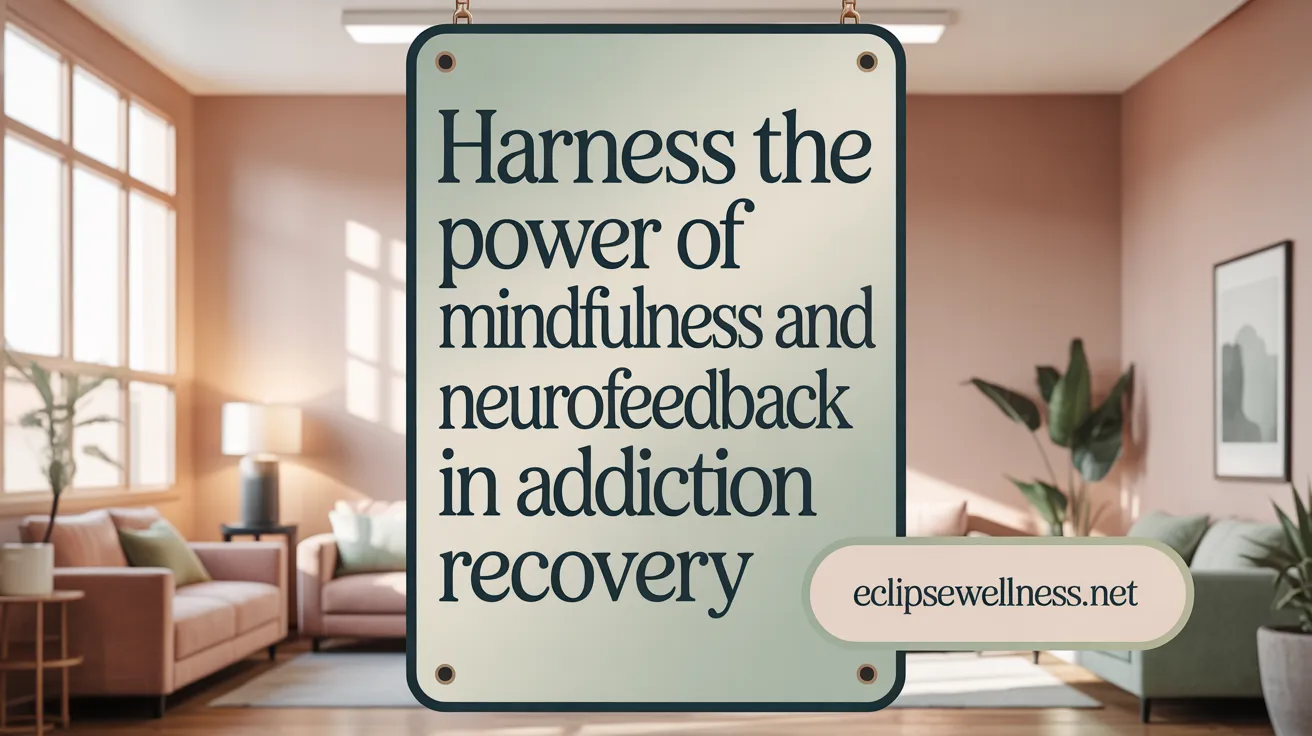Understanding Addiction as a Pathway to Holistic Recovery
Addiction as a Desire for Connection and Wholeness
Addiction often reflects a deep human longing for connection—not just with others but with ourselves. It signals unmet needs for wholeness that go beyond the physical cravings or behaviors. Recognizing this helps shift the focus from judgment to compassionate understanding, fostering a space where healing can begin.
Addiction as a Teacher
Rather than viewing addiction solely as a problem, a holistic perspective considers it a powerful teacher. It reveals hidden wounds or emotional challenges that need attention, guiding individuals toward self-awareness and personal growth. Embracing this view encourages openness to transformation rather than resistance.
Compassion and Empathy in Healing
Central to holistic recovery is the emphasis on empathy and compassion. These qualities create a nurturing environment that supports empowerment and self-acceptance. By replacing harsh judgment with kindness, individuals can engage more fully in their healing journeys, reclaiming agency and fostering lasting recovery.
The Role of Empathy in Addiction Recovery
What is empathy and its components in addiction treatment?
Empathy is the ability to understand and share the feelings and experiences of others. It involves both affective components, such as emotional contagion and motor mimicry, and cognitive components like perspective-taking and understanding mental states. In addiction treatment, nurturing empathy helps individuals reconnect with others and enhances emotional awareness and regulation. For more details on the neural substrates of empathy and addiction, including affective and cognitive components of empathy, see this resource.
How do empathy deficits manifest in substance use disorders?
Individuals with substance use disorders often show diminished empathy, struggling to recognize emotional cues and relate to others’ feelings. These deficits contribute to interpersonal conflicts and social isolation, impeding recovery. Notably, addiction can both stem from and exacerbate disruptions in empathic capacity. Learn about empathy impairments and their influence on substance use pathways for further understanding.
What neurobiological connections exist between empathy and addiction?
Research identifies key brain regions—including the insula, paraventricular nucleus of the hypothalamus (PVN), and thalamus (PVT)—as integral to both empathy and addiction mechanisms. Dysfunction in these areas is linked to impaired empathy and increased vulnerability to relapse, suggesting treatments that target these neural circuits may improve social functioning and recovery outcomes. Explore the neurobiology of empathy and addiction for more information on therapeutic targets and brain mechanisms.
How does empathy impact addiction recovery?
Fostering empathy creates a foundation of trust and emotional connection essential for healing. It promotes compassionate communication, reduces shame, repairs relationships, and encourages openness in therapy. Enhanced empathy improves treatment engagement, emotional resilience, and reduces relapse risk. See guidance on how empathy supports recovery and the benefits of empathetic interactions as well as empathy versus tough love in addiction support.
Why is empathy more effective than 'tough love'?
While 'tough love' relies on strict boundaries often perceived as punitive, empathy emphasizes understanding and kindness. Compassionate care reduces stigma and shame, which are known to reinforce addiction. Boundaries set with empathy maintain respect and support, creating a safer environment conducive to lasting healing. For insights on compassionate care and empathy's role in treatment success and how empathetic interactions benefit recovery, see this resource.
Integrating Holistic Therapies: Mind, Body, and Spirit

What holistic therapies support addiction recovery?
Holistic therapies offer a comprehensive approach that nurtures the whole person—physical, emotional, and spiritual aspects—during addiction recovery. These therapies work alongside traditional treatments to foster healing and resilience. For an overview of holistic and comprehensive recovery treating the whole person, see holistic models that emphasize treating the whole person.
Common Holistic Therapies
- Yoga and Tai Chi improve physical strength, flexibility, and mental focus while reducing stress. Resources on the use of mind body spirit alignment in addiction treatment highlight benefits of movement therapies.
- Meditation and mindfulness-based practices enhance self-awareness, regulate emotions, and aid stress management. Explore benefits of holistic therapy for addiction recovery for their role in relapse prevention.
- Acupuncture may alleviate withdrawal symptoms and cravings by restoring energy balance, as detailed in complementary approaches for substance use disorders.
- Art and music therapy provide creative outlets for emotional expression and building self-esteem; see art therapy for addiction recovery.
- Massage therapy promotes relaxation and relieves tension, with benefits documented in holistic treatment resources such as massage therapy benefits.
- Nutritional counseling supports physical health and replenishment of essential nutrients; more on the role of nutrition in addiction treatment is available.
Mind-Body Interventions
Neurofeedback trains brain activity to normalize neurological functions altered by addiction, improving mental clarity and supporting abstinence. Learn about neurofeedback for addiction treatment. Mindfulness-based interventions reduce cravings, lower drug cue-reactivity, and enhance coping skills to prevent relapse, as shown in research on mindfulness meditation benefits.
Benefits of Holistic Therapies
Incorporating holistic therapies in recovery helps reduce cravings and stress, supports emotional regulation, and builds resilience against relapse. By addressing the interconnectedness of mind, body, and spirit, these therapies empower individuals toward sustained well-being and transformative healing. Further insights are offered in holistic addiction treatment approaches that foster whole-person healing.
Personalized and Integrative Treatment Plans for Lasting Recovery

Why is personalized treatment important in addiction recovery?
Addiction manifests uniquely in each person, influenced by factors such as severity, co-occurring mental health issues, trauma, and individual life circumstances. Personalized treatment plans in addiction recovery recognizes these differences, tailoring approaches to meet specific client needs. This individualized care enhances emotional well-being and engagement in recovery, while reducing the risk of relapse by aligning therapy with personal goals and circumstances.
How are evidence-based therapies integrated into personalized treatment plans?
Personalized plans often combine proven therapies such as Cognitive Behavioral Therapy (CBT), Motivational Interviewing (MI), and Medication-Assisted Treatment (MAT). CBT helps individuals identify and change harmful thought patterns, MI supports motivation for change, and MAT addresses physical aspects of addiction. Integrating these with personalized goals creates a comprehensive framework addressing both psychological and physiological components of addiction.
What role do complementary approaches play in personalized addiction care?
Complementary methods like mindfulness, yoga for addiction treatment, acupuncture for addiction recovery, art therapy in addiction treatment, and neurofeedback for addiction treatment are blended with traditional treatments to create a holistic plan. These approaches support mind-body balance, reduce stress, improve self-awareness, and foster emotional healing. Tailoring the mix of therapies respects client preferences and cultural backgrounds, enhancing treatment adherence and satisfaction.
What are the benefits of personalized and integrative treatment plans?
Such treatment plans foster higher engagement and motivation, as clients feel their unique experiences are understood and addressed. They promote resilience and coping strategies that align with personal values and life goals. Moreover, integrating holistic mind-body-spirit approaches to addiction with evidence-based care supports sustainable recovery and helps prevent relapse by addressing the whole person—physical, emotional, mental, and spiritual aspects. Learn more about the holistic benefits of these approaches in holistic addiction treatment.
Compassionate Care and Therapeutic Alliance: Foundations of Healing

How does compassionate care improve addiction treatment outcomes?
Compassionate care plays a vital role in addiction treatment by fostering an environment of emotional safety and trust. When patients feel their experiences are validated and understood without judgment, they are more likely to engage deeply with their recovery process. This empathetic approach reduces stress and anxiety, which are major triggers for relapse. For more on the benefits of empathetic interactions, see Compassionate Care in Addiction Treatment and Benefits of Empathy in Recovery.
Oxytocin, a neurochemical often released through compassionate interactions, helps to lower stress levels and promote feelings of safety. This physiological effect supports patients in managing cravings and resisting impulses that undermine recovery. Learn about Oxytocin's Role in Reducing Cravings and Brain Mechanisms in Addiction and Care.
Implementing trauma-informed care, which emphasizes emotional validation and recognizes past traumas, is essential. Such approaches address the unique vulnerabilities of patients, particularly those with co-occurring mental health conditions, thereby enhancing treatment adherence and outcomes. See Integrated treatment of substance use and psychiatric disorders for evidence-based strategies, as well as Integrated care for co-occurring disorders.
Beyond the clinical setting, creating supportive environments—such as community programs and peer networks—extends the healing space, encouraging patients to maintain recovery momentum. These nurturing conditions reinforce compassion and connection, which are fundamental in sustaining long-term sobriety. More about Connection and unity in holistic addiction treatment and community feeling in recovery.
Addressing Co-Occurring Disorders Through Holistic Integrated Care
Why is integrated treatment essential for co-occurring disorders?
Co-occurring mental health and substance use disorders (SUDs) are common and deeply interconnected, with psychiatric conditions such as anxiety, depression, bipolar disorder, and personality disorders frequently accompanying addiction. These conditions mutually exacerbate one another, complicating recovery.
Integrated treatment is essential because it simultaneously addresses the psychological, pharmacological, and social complexities of both disorders. Treating them independently often leads to incomplete care, higher relapse rates, and poorer psychiatric outcomes. A holistic approach to recovery results in reduced substance use, improved psychiatric symptoms, and enhanced overall quality of life. See more about integrated treatment of substance use and psychiatric disorders.
What models support integrated care for co-occurring disorders?
Integrated care spans a spectrum from coordinated to fully integrated models:
- Coordinated care: Separate providers communicate and align treatment plans.
- Co-located care: Mental health and SUD services are offered in the same location but remain distinct.
- Fully integrated care: Mental health and addiction treatment are merged into a single program.
Fully integrated care offers the most comprehensive benefits by addressing overlapping symptoms, improving engagement, and providing seamless support tailored to the whole person, as emphasized in integrated care for co-occurring disorders.
Which evidence-based therapies effectively treat dual diagnosis?
Several evidence-based interventions are crucial in integrated programs, including:
- Cognitive Behavioral Therapy (CBT): Helps patients develop coping skills, challenge maladaptive thoughts, and reduce symptoms of both SUD and mental illness.
- Motivational Interviewing: Enhances motivation for change and treatment adherence.
- Family Therapy: Strengthens support systems and improves communication.
- Contingency Management: Encourages abstinence through positive reinforcement.
These therapies foster emotional regulation, enhance self-awareness, and support recovery by addressing both addiction and mental health needs simultaneously. Such approaches align with the principles of precision in addiction care and holistic addiction treatment. For further reading on personalized treatment plans in addiction recovery, see how tailored therapies promote long-term success.
Holistic integrated care models prioritize a patient-centered approach that respects the complexity of co-occurring disorders, offering personalized, compassionate treatment to promote lasting recovery and well-being.
Mindfulness and Neurofeedback: Emerging Evidence-Based Mind-Body Interventions

What is the role of mindfulness and neurofeedback in addiction recovery?
Mindfulness and neurofeedback are promising mind-body interventions that complement traditional addiction treatments by addressing both mental and neurological aspects of recovery. Mindfulness-based interventions for addiction (MBIs) train individuals to cultivate nonjudgmental present-moment awareness. This practice helps people recognize cravings, manage stress, and emotionally regulate without impulsive reactions. Consequently, mindfulness reduces addictive behaviors and drug cue-reactivity, supporting emotional resilience and reducing relapse risk.
Neurofeedback (also known as EEG biofeedback) directly targets dysregulated brain activity linked to addiction. By providing real-time feedback on neural patterns, neurofeedback helps normalize brain function in reward and executive control circuits. Studies indicate this technique can improve emotional regulation, reduce stress responses, and promote sustained abstinence. Neurofeedback for addiction treatment is an innovative method integrated within holistic approaches.
These therapies are integrated within comprehensive recovery programs to address the holistic needs of individuals. Mindfulness and neurofeedback synergize with cognitive-behavioral therapy and medication-assisted treatments, strengthening self-awareness and mind-body harmony. This approach reflects the holistic perspective on addiction healing that emphasizes mind-body medicine in recovery.
By promoting stress reduction and brain function improvement, mindfulness and neurofeedback support long-term abstinence and enhance relapse resilience. They empower individuals to develop healthier coping skills, foster emotional balance, and achieve a more profound self-understanding essential for lasting healing. Learning and applying these techniques is part of integrative therapy for addiction recovery, combining physical, emotional, and mental health approaches to sustain wellness.
Supporting Social Connection and Spirituality in Holistic Recovery
How do social connections and spirituality influence addiction recovery?
Addiction often signals a deep human need for connection—not only with others but also within oneself. Viewing addiction as a call for connection fosters compassion and highlights the importance of social and spiritual bonds in healing. Strong social networks offer emotional support that can powerfully counteract the isolation and shame common in addiction (Holistic perspective on addiction healing, Compassionate Care in Addiction Treatment, Empathy in addiction recovery).
Faith-based and spiritual practices play a vital role in recovery journeys. Programs like Alcoholics Anonymous and Celebrate Recovery incorporate spirituality, emphasizing reliance on a Higher Power (Faith and spirituality in substance abuse prevention). This spiritual involvement nurtures hope, meaning, and inner peace, which are essential for sustaining sobriety. Moreover, such programs contribute significantly to community health, with research indicating substantial societal benefits (Substance abuse treatment programs with spirituality.
Community support extends beyond formal spiritual groups. Group therapy, family involvement, and peer support networks provide safe, understanding environments where individuals rebuild trust and belonging (Empathy in addiction recovery, Integrated care for co-occurring disorders). These connections reinforce motivation and accountability, making recovery more sustainable (Holistic addiction treatment programs, Holistic mind-body-spirit approaches to addiction).
Belonging and purpose are foundational elements in holistic recovery. Engaging in caring communities, whether faith-based or secular, helps individuals reclaim their sense of identity and nurture resilience (Holistic perspectives on addiction healing, Holistic approach to addiction recovery, Holistic mental health care). A meaningful purpose—found through spiritual exploration, service, or supportive relationships—can transform the recovery experience, empowering long-term healing (Compassionate Boundaries in Recovery, Holistic Addiction Treatment Programs).
Transforming Addiction: From Stigma to Empowerment Through Whole-Person Healing
How does a holistic, empathetic approach transform addiction recovery?
By treating addiction as a multifaceted condition involving mind, body, and spirit, holistic mind-body-spirit approaches to addiction fosters self-understanding, healing, and empowerment. This non-judgmental approach reduces stigma, promotes patient participation, and encourages sustainable lifestyle changes for lasting recovery.
Reframing addiction as an opportunity for empowerment and self-awareness
Addiction is increasingly recognized not only as a disorder but also as a pathway to deeper self-awareness and personal growth. Holistic views emphasize compassion and embrace all parts of the self—including those often labeled "negative"—to facilitate healing. Viewing addiction as a teacher helps individuals identify areas needing care and transformation, turning challenges into milestones of empowerment.
Combining empathy, compassion, and holistic healing modalities
Empathetic, compassionate care is central to holistic addiction treatment. By fostering trust and emotional safety, it enhances patient engagement and reduces relapse risk. Integration of mind-body practices—such as mindfulness meditation benefits, yoga for addiction treatment, acupuncture for addiction recovery, neurofeedback therapy, and art therapy for addiction recovery—supports emotional regulation and physical well-being. These therapies complement traditional methods, addressing the intricate connections among mental, physical, emotional, and social health.
Promoting patient autonomy and self-care through education and personalized programs
Personalized treatment plans in addiction recovery grounded in empathy offer individuals the tools to actively participate in their recovery. Education about coping strategies, triggers, and self-care encourages autonomy and resilience. Tailored programs consider individual goals, co-occurring conditions, and cultural contexts, fostering motivation and adherence. This partnership-centered approach nurtures empowerment, restoring a sense of control and purpose.
Long-term follow-up and continuing care to sustain recovery
Sustaining recovery requires ongoing support that extends beyond initial treatment. Holistic perspective on continuing care integrates physical activities, social connection, cultural sensitivity, and relapse prevention strategies to maintain wellness. Community involvement, family support, and adaptive personalized care models help reinforce progress. Recognizing relapse as part of the journey, compassionate care promotes perseverance and a hopeful outlook for lifelong healing.
Embracing Empathy and Holistic Care for Sustainable Addiction Recovery
The Essential Role of Empathy in Healing
Empathy fosters understanding and trust, crucial for addiction recovery. By genuinely relating to others’ feelings and experiences, individuals rebuild relationships and reduce conflicts, promoting emotional support throughout their recovery journey.
Benefits of Holistic Therapies and Personalized Care
Integrating therapies such as mindfulness, yoga, nutrition, and neurofeedback addresses the mind, body, and spirit, supporting overall well-being. Personalized treatment plans tailor interventions to individual needs, improving engagement, emotional resilience, and reducing relapse risk.
Compassionate, Trauma-Informed, and Integrated Approaches
Compassionate care reduces shame and promotes emotional safety, important for healing trauma often underlying addiction. Integrated treatment addresses co-occurring mental health issues alongside substance use, providing comprehensive support for lasting recovery.
Advocating Whole-Person Recovery Models
Adopting whole-person approaches acknowledges addiction's complex nature. Emphasizing connection, self-awareness, and empowerment, these models cultivate sustainable healing by addressing physical, emotional, social, and spiritual dimensions of health.
